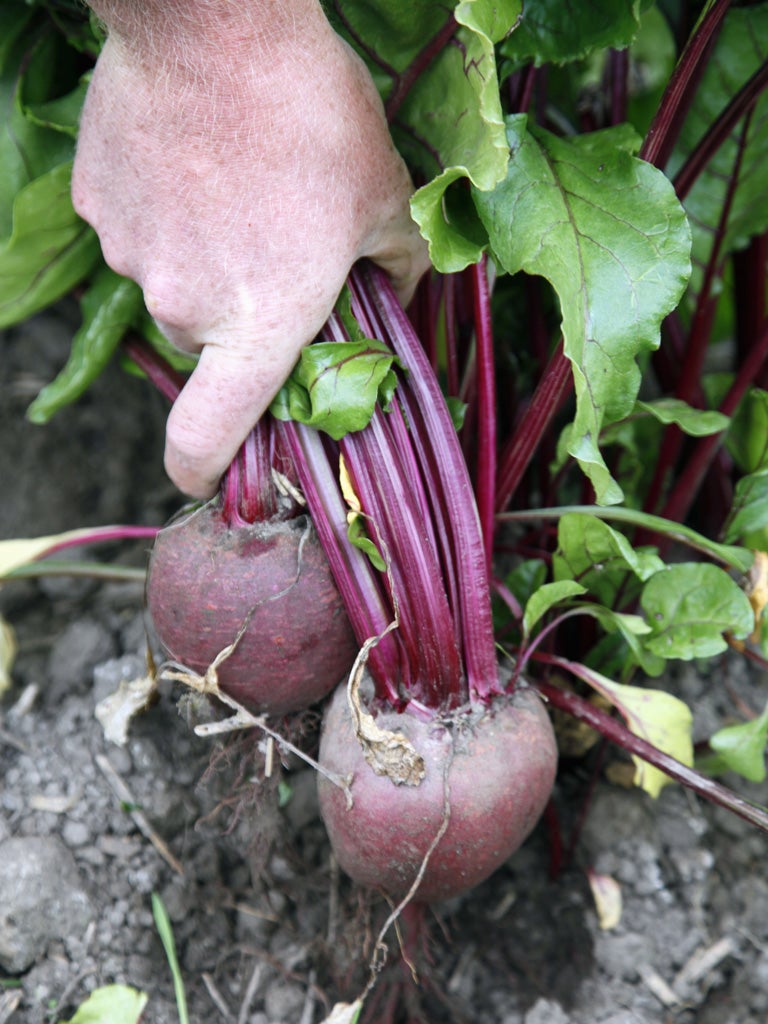Purple patch? Beetroot emerges as nature's performance enhancer

If you see an athlete with purple stains on their lips during this summer's Olympics, they may be taking the latest performance enhancer – beetroot.
A soon-to-be-published study of climbers in the Alps who were given beetroot juice to drink is expected to show that it boosted the efficiency in which their bodies used oxygen.
The study is part of a series investigating the effects of altitude on the body which leads to oxygen deprivation similar to that experienced by patients suffering from critical illness.
Researchers from the Centre for Altitude, Space and Extreme Environment Medicine (Case) at University College, London, say the insights they have gained from studying elite climbers are helping to improve treatment of patients in intensive care.
Blood samples taken at the top of Everest showed some of the climbers had blood oxygen levels so low they were previously thought to be incompatible with life. Now, in a £1m study over five years, funded by the National Institute for Health Research, experts will examine these "good adaptors" (to altitude) for biomarkers in their blood that could help identify patients able to tolerate low levels of oxygen.
Mike Grocott, professor of critical care medicine at Southampton University, who is leading the research, said: "What we want to know is who is a good adaptor [to low oxygen levels] and why."
A critically ill patient who was a good adaptor would not need as high an oxygen level as a person who was a poor adaptor, so treatment could be adjusted and the effects of ventilation avoided. "We often give oxygen to keep people alive. But using mechanical ventilation harms the lungs. If you can turn the ventilator down, because the patient you are treating can manage on a lower level of oxygen, that is a benefit."
A second study, of climbers who ascended to an altitude of 4,500 metres in the Alps, found changes in the microcirculation and in the metabolism of the body's cells. "The capillaries don't work as well and the cells go into hibernation – where there is less oxygen they close down so they don't use as much," Professor Grocott said.
The change is linked with the level of nitric oxide in the blood, raising the possibility that by taking nitrate supplements it may be possible to counter the effects of oxygen deprivation – at altitude and in critical illness. Beetroot is rich in nitrates and other researchers have found it boosts stamina.
As a former head of Case and leader of Xtreme Everest, he will lead an expedition to Everest Base Camp next year to examine the Tibetan sherpas who work there and compare their physiology with that of regular high altitude climbers and those arriving on the mountain for the first time.
Subscribe to Independent Premium to bookmark this article
Want to bookmark your favourite articles and stories to read or reference later? Start your Independent Premium subscription today.

Join our commenting forum
Join thought-provoking conversations, follow other Independent readers and see their replies